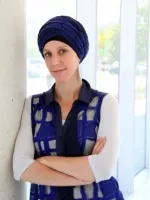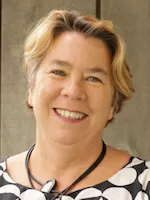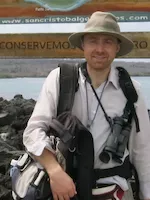In class, I often pose questions that students would face going into the workforce, and then I walk them through how to find a solution by utilizing a series of active-learning exercises. First, I abstract the question. By generalizing the problem, it affords students the ability to tackle it from several, non-technical, angles. It also allows them to apply this problem-solving technique to other similar problems. Sometimes even unrelated problems! Then I simulate an environment in which they have been “hired” by a company and tasked to solve the problem(s). Students work individually and in teams to solve a series of real-world problems; by doing so, I connect the theoretical material with the practical applications. Further, this allows students to build their skills but also add something of substance to their portfolio as I frequently associate larger scale problems to their assignments.
- Michael Liut, Assistant Professor, Teaching Stream, Mathematical and Computational Sciences
All of my courses integrate the development of “real world” skills alongside the acquisition of subject-based knowledge. I concentrate primarily on students’ research and writing skills because I know from my previous career in the federal civil service that these aptitudes are particularly valued by employers. I use a variety of strategies to help students strengthen their ability to craft persuasive arguments and communicate clearly, including scaffolded assignments that break the research process down into its component parts, as well as assignments that allow students to experiment with different writing genres, including op-eds, infographics, field journals, and policy briefs. I also encourage students to take advantage of the workshops offered by the Robert Gillespie Academic Skills Centre.
- Erin Tolley, Associate Professor, Department of Political Science
When teaching anthropology, I aim to challenge students’ assumptions about society at large – their beliefs about human social relations, about sameness and difference, about social and cultural identities, about language and social interaction. I do so by continuously making connections between course discussions and students’ own lived experience, both in the classroom and through assignments. In lectures, for example, I continuously illustrate abstract course concepts through short and often humorous media clips on, for example, stereotypes about a certain social group. After showing the clip, I ask students why the segment is humorous or why it is problematic. We subsequently talk about how course concepts help them better understand (linguistic) stereotyping and its consequences. I also use journal assignments. Students are asked to keep a journal in which they reflect upon themselves as, for example, gendered beings and how in-class discussions make them think differently about practices they take for granted. Lastly, I also integrate interview assignments in my courses. Students interview a person of their choice on a topic related to the course and write a final paper on the interview. Using these strategies, students come to see how class material matters to them in very concrete and important ways.
-Sarah M. Hillewaert, Assistant Professor, Department of Anthropology
I have the great pleasure of teaching History’s internship class. I work with advanced History students to identify research and learning interests, and find public history placements for them in the GTA. We’ve placed students at the Royal Ontario Museum, the Canadian Arab Institute, Heritage Mississauga, Peel Art Gallery, Museum + Archives (PAMA), and other sites. The students get a lot our of the program: they get to put their training to use in the public interest, while exploring post-graduate career options. Check us out here!
-Elspeth Brown, Associate Professor, Department of Historical Studies
Sometimes we have world experts Skype into class, which humanizes the science we are talking about. It puts a face to the ideas they are learning.
-Marc Johnson, Associate Professor, Department of Biology





